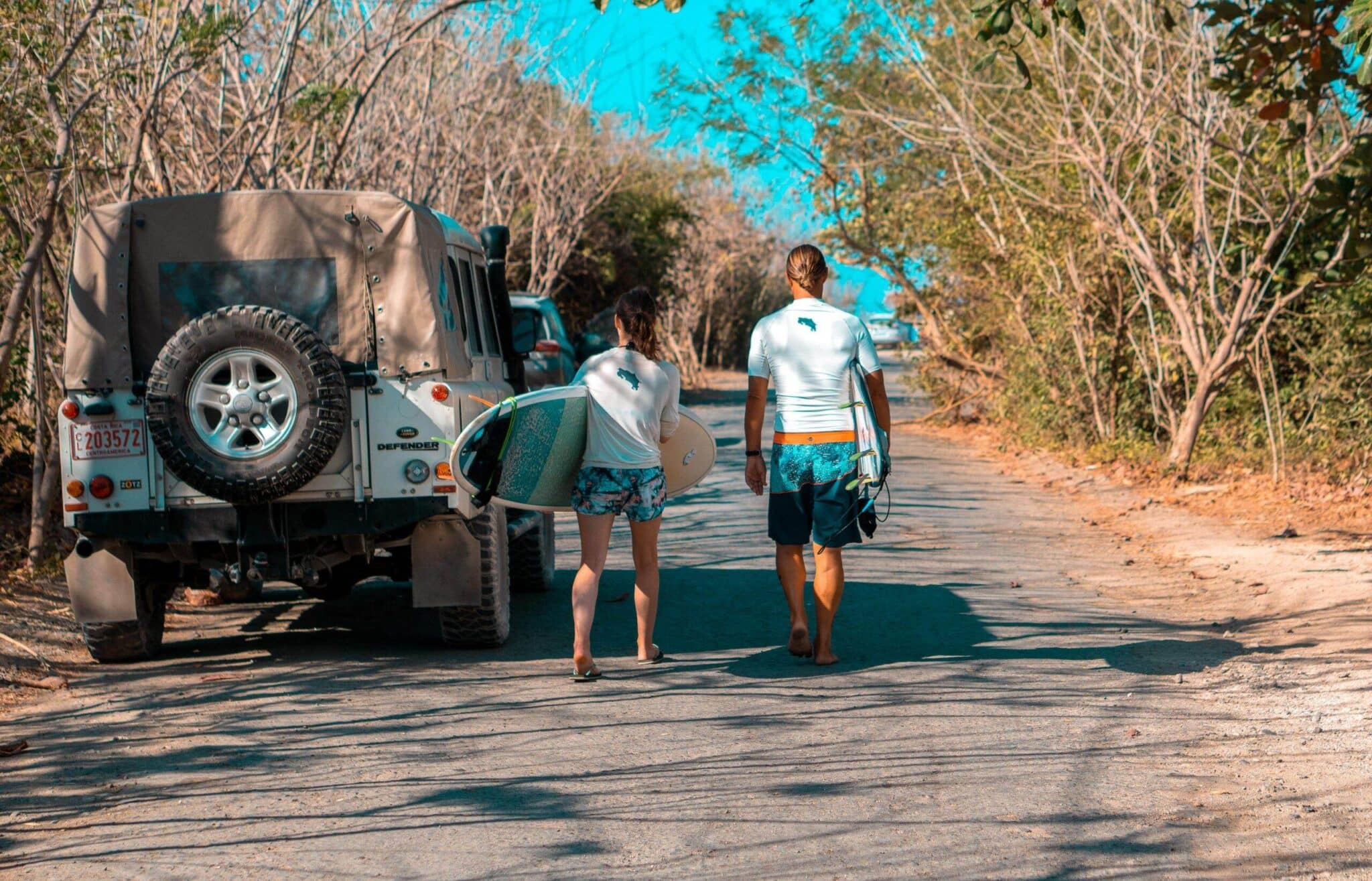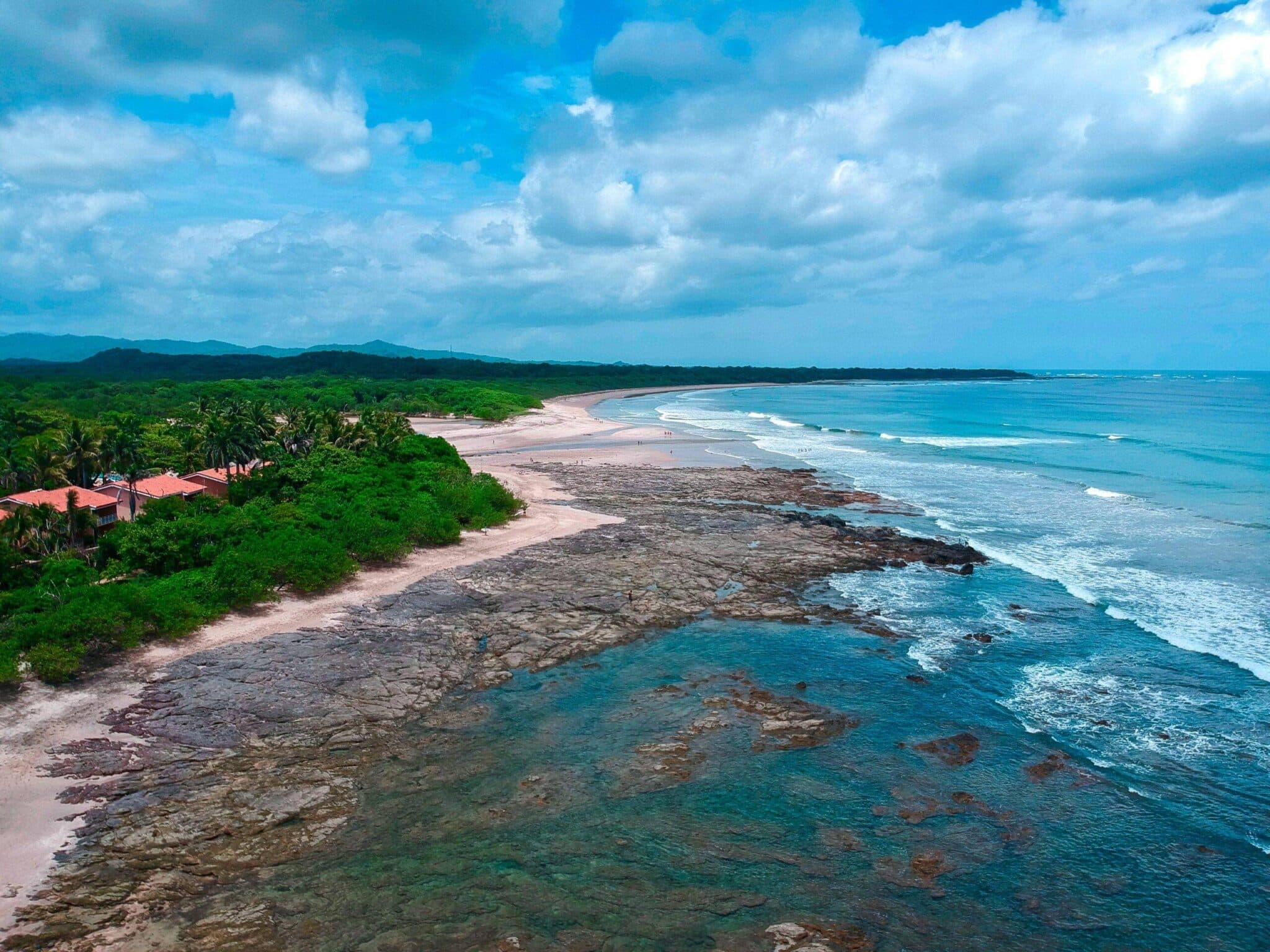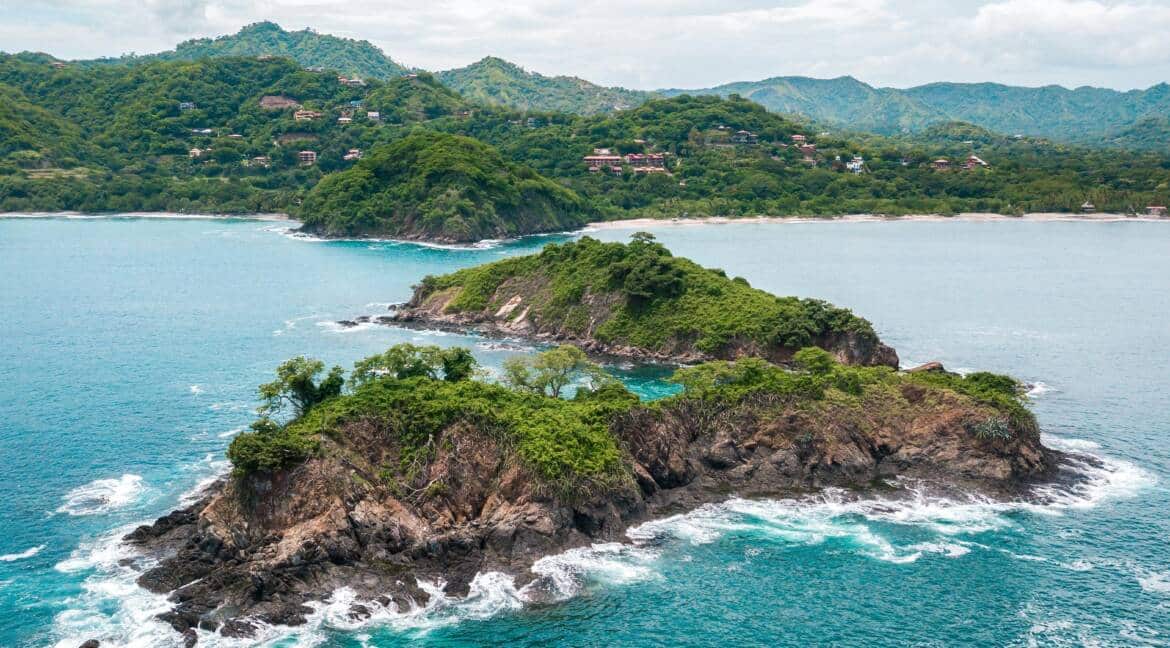So, you’re thinking about moving to Costa Rica. And you’re wondering whether you should be a perpetual tourist in Costa Rica or whether you should apply for Costa Rica residency?
Your answer is probably “both!” We know, that seems confusing. But, the truth is, perpetual tourism is a temporary solution – a see-what-you-think stop-gap between moving to Costa Rica and deciding you want to make Costa Rica your long-term or forever home.
So, we’ve pulled together the pros and the cons and separated the fact from the fiction, to help you weigh your options and make the right decision for you. Off we go!
Perpetual Tourist in Costa Rica: Pros and Cons

Perpetual tourism in Costa Rica is unofficial terminology designated to describe the completely legal (as of mid-2022) practice of living in Costa Rica as a tourist.
Briefly, here’s how it works: You come to Costa Rica as a tourist. Depending on your passport country, you’ll receive up to 90 days in Costa Rica. When your 90 days are up, you can leave Costa Rica – for anywhere from an hour to any amount of time – and then turn around to “renew” your passport stamp (for another period of up to 90 days). Lather, rinse, repeat, for as long as you’d like.
Pros
Perpetual tourism can be a wonderful thing: It’s a chance to live the good life and experience the pura vida without any major commitment. To be footloose and fancy-free, for as long as it takes to decide whether Costa Rica’s right for you.
Here are a few good reasons why you might want to begin your Costa Rican life as a perpetual tourist:
It’s Cheaper… in the Short-Term, At Least!
Between gathering your documentation – not just paying for copies of all your required documents, but then getting them apostilled, legally translated, and officially stamped – and paying fees to your residency attorney (not strictly required but usually very much recommended), Costa Rica residency can cost anywhere from a couple of hundred dollars to $2,500+ per person.
Being a perpetual tourist in Costa Rica, though? It costs you nothing beyond your standard travel and living expenses. So, whether you’re just testing the waters to see if residency is right for you, or you’re here for just a year or two, perpetual tourism is a great way to sample life in Costa Rica.
Additionally, as a perpetual tourist, you won’t have to pay into the Costa Rican public health system, known as the Caja or the CCSS. And depending on your residency category, your family’s monthly contribution could run $150-$500+.
No [Significant] Paperwork
Speaking of residency, there’s a lot of paperwork. But again, for perpetual tourism? Nada. There is no paperwork beyond the stamp on your passport when you enter and re-enter the country.
Requirement: A Valid Passport
Becoming a perpetual tourist in Costa Rica is as easy as presenting your valid passport at the border: hand it over, get your stamp, and go home, wherever that is in Costa Rica.
No documentation. No translation. No stamps. No running around. No “expired” documents. None of it. Again, this is the Costa Rican version of easy street – at least in the short term. (See cons, below, for why this may be more of a short-term solution.)
No Strings Attached
Another benefit of perpetual tourism is that you’ll feel no obligation to remain in Costa Rica: Not the right fit? No problem. You can pack your bags and head back out into the great blue yonder, to search for the best place for you to call home.
Cons
By now, you’ve probably noticed that there’s a theme to our pros: Perpetual tourism is an excellent choice for people who are as yet unsure of whether they’d like to move to Costa Rica OR who won’t be here long enough to reap the benefits of residency (or be bugged about the cons).
That said, if you’ve tested the waters and have decided you’re in it for the long haul, then perpetual tourism probably isn’t for you (anymore). Here’s why:
You Don’t Have the Right to 90 Days
Here’s the hard truth: Perpetual tourists have zero legal standing in Costa Rica. You are at the mercy of an Immigration official, every time you enter Costa Rica.
That means that, while the law may allow you to stay up to 90 days at a time, the Immigration official can give you 3 days, if they so choose. Even if you have a return flight in 90 days, catch an official in a bad mood, and no amount of finagling, sweet-talking, or logic will change their mind.
And you’ll have no recourse.
Rules Can Change
No legal standing also means the rules can change at any point and, because these tourists have no specific legal status here, they won’t get grandfathered into new legislation based off of old legislation. In other words, if the rules change, they change for all perpetual tourists – both for the ones who have been here for two days and for those who have been here for two decades.
And they have changed. In 2020, with the onset of the COVID-19 pandemic, tourists (including perpetual tourists) were banned from entering Costa Rica. This lasted for months. If you were out of the country, you weren’t getting in – even if you’re family was here, even if you owned property here, even if you were booked to return before the ban was put into place. Sorry but no.
So, as soon as you have ties to Costa Rica, it’s a good idea to get residency. Long-term perpetual tourism is more for the true free spirits whose lives won’t end, if they’re given a short stay (or no stay).
Hassle: Visa Run Required
A “visa run” is Costa Rican expat parlance for the required exit/re-entry to re-up your passport stamp. For U.S., Canadian, and most European passport holders, this occurs at least once every 90 days (the maximum stamp time).
There are two ways to see the visa run: it’s either a required vacation every three months or a required hassle every three months. The third way to see it? It’s a little of both: It’s definitely required and it might be a bit of a hassle, but if you decide to make the best of it, you can explore Nicaragua, Panama, and even nearby fly-to destinations, like Mexico and Colombia, for a few days, a few times a year.
That said, COVID has thrown a bit of a monkey wrench in the visa-run situation. While it’s now again possible to enter Costa Rica on a tourist visa, without a COVID test, you may be required to get a COVID test for your visa run (at $50-$100 a pop), plus any other requirements of the country you’ll be visiting. The logistics themselves are enough to be considered a hassle, although the level of hassle depends on how determined you are to take it all in stride.
No Guarantees
There’s no guarantee that Costa Rica’s approach to perpetual tourists won’t change, even on a dime (or would that be a ¢10?). For example, tomorrow, Congress could debate a new bill to limit tourists to one single 90-day stay per calendar year. What then?
Reduced Access to Services
Beyond the logistical cons, here’s a very real, real-life, everyday kind of issue you’ll encounter as a perpetual tourist: It can be nearly impossible to conduct your everyday life in Costa Rica with just a passport.
By way of example, you will find it almost impossible to open a local bank account. Which will make it more challenging to pay your rent, your bills, and other services and expenses that are most often paid through local bank accounts. Speaking of, you also won’t be able to connect most services (ex. electricity or internet) in your name. You need a residency cédula (Costa Rican ID) for that.
And, we know, this seems like a small inconvenience. But by the time you’re on hour 4,532 (alllllmost not exaggerating) of trying to get the one tiny thing done, and you’re still running up against brick walls at every turn, you’ll be ready to rage at the next person who tells you to embrace the pura vida.
No Route to Permanent Residency (or its benefits)
When you live long-term in Costa Rica, permanent residency is a path to a permanent life. It’s more than renewing your residency less often: It means you can work in Costa Rica. It means you have a path to citizenship. It means a lot of things.
Being a perpetual tourist in Costa Rica earns you none of those things. It does not fast-track you to temporary or permanent residency. It doesn’t afford you any rights. And it definitely, under no circumstances, means you can work. No matter what people say or how they try to cut it, you cannot work in Costa Rica as a perpetual tourist. (For that, you’d need either a work permit, which is next-to-impossible to secure, or you could become a digital nomad.)
Tourist Prices
This is a small one but, depending on your level of acceptance, it can get frustrating over the years: In Costa Rica, it’s legal (in certain situations) to have a tourist price vs. a local/resident price.
Long story short, you’re going to pay more at national parks, for in-country flights, for hotels, and other goods and services (mostly related to the tourist industry). And there’s nothing you can do about it because you are a tourist, not a bonafide resident with rights.
Costa Rica Residency: Pros and Cons

We’ve already discussed the most popular residency options for homeowners in Costa Rica, which will give you a strong overview of the reasons why – or why not – residency might be right for you.
That said, for the purposes of this post – and a more cohesive point, counterpoint comparison – let’s do a quick(ish) overview of the pros and cons of Costa Rica residency:
Pros
If you plan to move your life to Costa Rica, either for the long term or permanently, then you’ll almost certainly benefit from official residency. Here’s why:
You’ll Have Legal Status
As a Costa Rican resident, you’ll have certain protections under the law. In addition to having the simple right to reside, you’ll also have the right to grandfathering – a big deal, considering how often residency laws can change!
For example, during the COVID pandemic, it was eventually ruled unconstitutional to restrict citizen and resident movements into/out of Costa Rica; both were able to come and go, as required. Another example: CCSS contribution law was updated in late 2021, increasing monthly payments but only for new residents; all existing residents were grandfathered in (or grandfathered forward) with the existing, lower-cost regulations.
Bottom line: In many ways, residency is legal protection for you and your family.
Legal Right to Reside (and Live)
In addition to the mere right to reside, legal residency makes life easier in Costa Rica. Not only will you never risk being turned away from the border, but you’ll be able to open bank accounts, cell phone lines, and create utility bills in your name. You’ll also be able to get a Costa Rican driver’s license.
CCSS Healthcare
As a resident, you’ll pay into the Costa Rican public health system. (Most of us see this as a benefit, especially for emergency medical needs!)
Permanent Residency
All temporary residents have a path to permanent residency, which is a more long-term residency that allows the right to work, whether in your own business or for another.
Other Benefits
In 2021, Costa Rica Law N. 9996, the Law to Attract Investors and Retirees, created new and even more advantageous regulations to certain foreigners seeking residency:
- Reduced $150,000 Investment Threshold: The investment threshold will be lowered from $200,000 (USD) to $150,000, to include $150,000+ real estate purchases.
- Duty-Free Household Imports: Temporary residency holders – investors (inversionistas), renters (rentistas), and pensioners (pensionados) – will now enjoy an exemption on import taxes for household items, including whole containers, on their first import. (Any following imports will be subject to standard import taxes.)
- Duty-Free Vehicle Importation: Temporary residency holders – again, investors (inversionistas), rentors (rentistas), and pensioners (pensionados) – will now be exempt from taxes when importing up to two vehicles for personal use.
- Other Tax Exemptions: These will include transfer tax exemptions, income tax exemptions, professional-use instruments and materials tax exemptions, and more.
Cons
While residency is worthwhile, it’s work. And it’s not free. Here are a few of the heads-up downsides:
There’s a Lot of Paperwork
You’ll be required to gather certain paperwork from your home country. The common players include birth certificates, marriage certificates, divorce decrees, and criminal background checks. They must be either apostilled or certified.
If they are issued in any language that is not English, you’ll have to have them officially translated and stamped. And all this must be done within a certain timeframe; one day over, and you’ll have to start again from scratch.
It’s Not Cheap
In addition to the costs of all those official documents, plus their subsequent apostilles/certifications and official translations, you’re likely going to hire a residency attorney. All told, that’ll likely run you $1,500-$2,500 per person, depending on how much you do vs. they do. (For example, will they handle all your paperwork or will you do that yourself?)
It’ll Take Awhile
Depending on your type of residency and how far behind Immigration is currently running, you’re looking at a timeframe of 6 months to several years; the average is usually about 12-18 months.
While you wait, you’re in a weird residency limbo: You don’t have to leave the country but if you do, you’ll return as a tourist (and at Immigration’s whim, see above). You also cannot yet get a Costa Rican license, so you’ll be required to leave the country to renew your foreign driving rights as a tourist.
And CCSS Contributions Are Increasing
Residency applications submitted after March 2022 will be subject to new CCSS/Caja contribution requirements, which now include disability, old age, and death – and a big increase in the monthly payment. (See here for more details and hard numbers.)
Note that residency lawyers are already poised to fight this change, but we won’t know until we know. Stay tuned.
Questions about Costa Rica Residency and Life?
You have questions, we have answers! Whether you’re just looking into becoming a perpetual touris in Costa Rica or are already well on your way to residency, we’d love to help you explore the possibilities of life in Costa Rica.
At Blue Water Properties of Costa Rica, we’re committed to you. Not to selling you a property or spamming you with all the options, but to helping – genuinely and with good intent – to match you to the perfect property for your needs and wants. We thrive on relationships and promise the fastest communication and best services in the industry.
And we’re proud to offer some of the best Costa Rica Real Estate. We have both condos and homes, land and businesses for sale.
Go ahead – try us. Give us a chance to show off our expertise – and wow you with the possibilities! We look forward to it.


